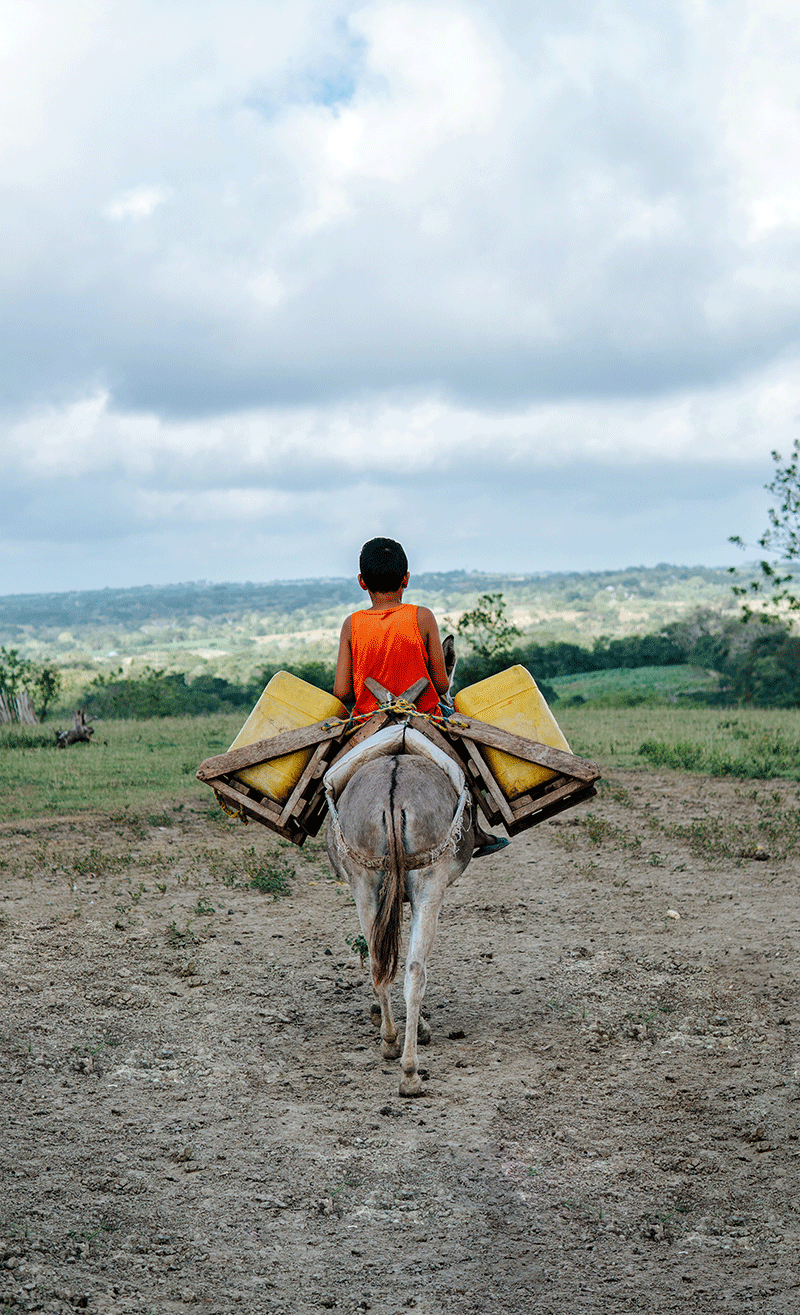An estimated 112 million equines are working animals central to the livelihoods of millions of people around the world. Good equine welfare and economic development should be mutually reinforcing, but this is not generally accepted
Adequate respect, welfare and health provisions can enhance the quality of life of these animals, and ensure their continued value to communities and their productivity.
The Donkey Sanctuary and World Horse Welfare’s 2017 report Sustainable Development Goals: How the welfare of working equids delivers for development demonstrates that working equines are core in achieving the UN’s Sustainable Development Goals.
The main SDGs linked to the welfare of working equids are:
SDG 1: No poverty & SDG 8: Decent work and economic growth
Working equids increase the income of poor communities, by enabling individuals to have a professional activity, including in the tourism sector.
SDG 2: Zero Hunger & SDG 6: Clean Water and Sanitation
Working equids allow poor communities to have access to resources such as food and clean water.
SDG 3: Ensure healthy lives and promote wellbeing for all at all ages
OneHealth concept: the health of animals is tightly connected to the health of animals. Due to their proximity with humans, working equids can easily transmit zoonosis if infected.
SDG 13: Climate Action
Working equids play an important role in recovery after a climate change event by providing their communities with resources.
SDG 4: Quality Education & SDG 5: Gender Equality
Working equids help empower children and women by lessening their work and allowing them to receive an education.
SDG 11: Sustainable Cities and Communities & SDG 7: Affordable and Clean Energy
Working equids also represent a sustainable and pollution-free means of transport/work and should be protected as such.
WHAT DOES THE PUBLIC THINK?
A lack of attention to the connection between animal welfare and sustainable development threatens to undermine progress in both animal welfare and development.
On the one hand, resources are less effective if the role of animals is not properly taken into consideration. On the other hand, and perhaps more importantly, without this broader understanding animal welfare and development may be seen as opposing interests, similarly to the way environmental or climate concerns were long considered at odds with social justice issues.
The interests of all three should be aligned in fostering sustainable development. The EU and its Member States have an opportunity to leverage their development cooperation to achieve this.
POLICY - CURRENT STATE OF PLAY
In order to encourage better care and conditions for working horses, donkeys and their hybrids, it should be incumbent on the European Commission to encourage its development partners to adopt adequate measures for the protection of these animals. However, the European Commission’s Directorate-General for International Cooperation and Development (DG DEVCO) does not, at present, formally acknowledge the link between good equine welfare outcomes and higher levels of development.
Economic and wider livelihood benefits should become an automatic trigger to engage community stakeholders in equine welfare-related activities and motivate them to change their behaviour towards animals. Such behavioural change should also be linked to sustainable development within the framework of the UN’s Sustainable Development Goals (SDGs). Currently, though, the SDGs formally do not link good equine welfare outcomes with higher levels of development.










